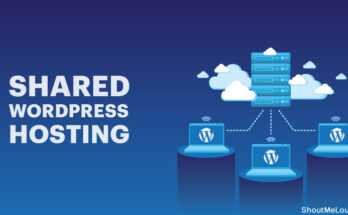In the ever-evolving digital landscape, Web3 has emerged as a transformative force, revolutionising how businesses interact with customers, manage operations, and leverage technology. Often referred to as the decentralised web, Web3 is built on blockchain technology and focuses on empowering individuals by removing intermediaries, enhancing transparency, and providing greater control over data. For modern businesses aiming to stay competitive, embracing Web3 strategies is not just an option but a necessity. Below are some of the best Web3 strategies that businesses can implement to thrive in this new era.
- Adopt Blockchain Technology for Transparency and Security
Blockchain lies at the heart of Web3, offering a decentralised and immutable ledger that ensures transparency and security. Businesses can integrate blockchain into their operations to enhance trust with customers and stakeholders. For instance, supply chain companies can use blockchain to track and verify the journey of products, ensuring authenticity and ethical sourcing. Similarly, financial institutions can adopt blockchain to enable secure, tamper-proof transactions, fostering customer confidence.
- Leverage Smart Contracts for Automation
Smart contracts are self-executing agreements with predefined rules and conditions coded onto a blockchain. These contracts eliminate the need for intermediaries and ensure that transactions are automatically processed when specific criteria are met.
- Embrace Decentralised Finance (DeFi)
Decentralised Finance, or DeFi, is one of the most disruptive aspects of Web3. It allows businesses to bypass traditional banking systems by using blockchain-based financial services. Through DeFi platforms, companies can access loans, process payments, or manage investments without relying on intermediaries.
- Implement NFTs to Enhance Brand Loyalty
Non-fungible tokens (NFTs) have gained massive popularity in recent years, and businesses can leverage them to engage customers in unique ways. NFTs can represent ownership of digital or physical assets, such as art, collectibles, or exclusive memberships.
- Explore Decentralised Autonomous Organisations (DAOs)
Decentralised Autonomous Organisations (DAOs) represent a new form of governance where decisions are made collectively by stakeholders through smart contracts. Businesses can adopt DAO structures to engage with their communities and stakeholders more effectively.
- Build a Presence in the Metaverse
The metaverse, a virtual space powered by Web3 technologies, is rapidly becoming a key area of interest for modern businesses. By creating immersive experiences in the metaverse, companies can reach younger, tech-savvy audiences and establish themselves as innovative brands.
- Prioritise Data Ownership and Privacy
In the Web3 era, data ownership and privacy have become critical concerns. Unlike Web2, where companies often control user data, Web3 shifts the focus to individual ownership. Businesses that prioritise user data security and privacy will earn the trust of their customers.
- Educate and Empower Your Workforce
Transitioning to Web3 requires not only technological upgrades but also a workforce that understands its potential and challenges. Businesses must invest in educating their employees about Web3 concepts like blockchain, NFTs, DeFi, and DAOs. Workshops, training programs, and partnerships with Web3 experts can help employees adapt to new technologies and workflows. A well-informed workforce will enable businesses to innovate, implement strategies effectively, and stay ahead of the curve.
Parting Thoughts
Web3 is redefining the future of business by fostering decentralisation, transparency, and customer empowerment. From adopting blockchain technology and smart contracts to exploring NFTs and the metaverse, the opportunities are vast and transformative. By implementing these Web3 strategies, modern businesses can not only enhance their operations but also build stronger connections with customers in this rapidly changing digital era. Businesses that embrace these strategies early will position themselves as leaders in the new decentralised economy, ensuring sustainable growth and success in the years to come.Top of FormBottom of Form




